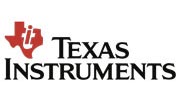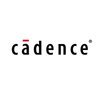Filter interviews by
Intel Interview Questions and Answers for Experienced
24 Interview questions
Basic rework of a PCB involves repairing or modifying the board to ensure proper functionality and reliability.
Identify the faulty components using testing equipment like multimeters.
Desolder defective components using a soldering iron or desoldering pump.
Replace with new components, ensuring correct orientation and placement.
Resolder connections carefully to avoid shorts or cold joints.
Test the PCB after rework t...
Hoisting is a JavaScript mechanism where variable and function declarations are moved to the top of their containing scope during compilation.
Variables declared with 'var' are hoisted, but their initialization is not. Example: console.log(a); var a = 5; // undefined
Function declarations are fully hoisted, allowing them to be called before their definition. Example: greet(); function greet() { console.log('Hello');...
let, const, and var are JavaScript keywords for variable declaration with different scopes and mutability.
var: Function-scoped or globally-scoped, can be redeclared and updated. Example: var x = 10; x = 20;
let: Block-scoped, can be updated but not redeclared in the same scope. Example: let y = 10; y = 20; // valid
const: Block-scoped, cannot be updated or redeclared. Must be initialized at declaration. Example: con...
The graphics pipeline is a sequence of steps that transforms 3D models into 2D images on the screen.
1. Vertex Processing: Transforms 3D coordinates into 2D space (e.g., applying transformations like translation, rotation).
2. Clipping: Removes parts of objects outside the viewable area to optimize rendering.
3. Rasterization: Converts vector graphics into pixels, determining which pixels are affected by the shapes.
4...
Connecting an HDMI device triggers OS interrupts for detection and configuration.
HDMI connection generates a hardware interrupt to notify the OS.
The OS identifies the connected device type (e.g., monitor, TV).
Drivers are loaded or configured based on the device capabilities.
Resolution and refresh rate settings may be adjusted automatically.
User notifications may appear, indicating the new display settings.
Machine maintenance should be scheduled based on regular inspections, production downtime, and manufacturer recommendations.
Regularly inspect machines for signs of wear and tear
Schedule maintenance based on production downtime to minimize impact on output
Follow manufacturer recommendations for maintenance intervals and procedures
I have extensive knowledge of Azure services and have worked with them in various projects.
I have experience with Azure Virtual Machines, Azure SQL Database, Azure Blob Storage, Azure Functions, and Azure App Services.
I am familiar with Azure networking services such as Azure Virtual Network, Azure ExpressRoute, and Azure Traffic Manager.
I have worked with Azure monitoring and management tools like Azure Monitor, ...
I have extensive experience in azure cloud migration, including planning, executing, and optimizing migrations for various organizations.
Led multiple azure cloud migration projects from start to finish
Developed migration strategies based on business requirements and technical constraints
Utilized azure tools and services to streamline migration processes
Worked closely with stakeholders to ensure smooth transition a...
The coin change problem involves finding the minimum number of coins needed to make a certain amount of change.
Start by creating an array to store the minimum number of coins needed for each amount from 0 to the target amount.
Iterate through each coin denomination and update the minimum number of coins needed for each amount.
Return the value at the target amount in the array as the minimum number of coins needed.
If software is not meeting quality standards, I will identify the root cause, work with the team to address the issues, and implement corrective actions.
Identify the root cause of the quality issues through thorough testing and analysis
Collaborate with the development team to address the identified issues
Implement corrective actions such as code refactoring, additional testing, or process improvements
Monitor the s...
Intel Interview Experiences for Experienced
41 interviews found
I appeared for an interview before Jul 2024, where I was asked the following questions.
- Q1. Previous work related questions
- Q2. Debugging skills
- Ans.
I possess strong debugging skills, utilizing systematic approaches to identify and resolve product issues effectively.
Utilize root cause analysis techniques to identify underlying issues, such as the 5 Whys method.
Employ debugging tools like oscilloscopes and logic analyzers to trace signal integrity problems in electronic products.
Conduct thorough testing and validation processes, including unit tests and integration ...
Interview Preparation Tips
(2 Questions)
- Q1. Abinitio job related questions
- Q2. Sql queriea for various scenarios
(2 Questions)
- Q1. About agile process used
- Ans.
Agile processes emphasize iterative development, collaboration, and flexibility to enhance project delivery and team dynamics.
Iterative Development: Agile breaks projects into small, manageable units called sprints, allowing for regular assessment and adjustments.
Collaboration: Daily stand-up meetings foster communication among team members, ensuring everyone is aligned on goals and progress.
Customer Feedback: Regularl...
- Q2. Generic questions on how projects were handled
I appeared for an interview in Aug 2024.
(1 Question)
- Q1. About your experience
(1 Question)
- Q1. About you and experience
(1 Question)
- Q1. About you and experienc
Interview Preparation Tips
I applied via Referral and was interviewed in Jun 2024. There was 1 interview round.
(2 Questions)
- Q1. Explain graphics pipeline
- Ans.
The graphics pipeline is a sequence of steps that transforms 3D models into 2D images on the screen.
1. Vertex Processing: Transforms 3D coordinates into 2D space (e.g., applying transformations like translation, rotation).
2. Clipping: Removes parts of objects outside the viewable area to optimize rendering.
3. Rasterization: Converts vector graphics into pixels, determining which pixels are affected by the shapes.
4. Fra...
- Q2. Os interrupts when you connect hdmi
- Ans.
Connecting an HDMI device triggers OS interrupts for detection and configuration.
HDMI connection generates a hardware interrupt to notify the OS.
The OS identifies the connected device type (e.g., monitor, TV).
Drivers are loaded or configured based on the device capabilities.
Resolution and refresh rate settings may be adjusted automatically.
User notifications may appear, indicating the new display settings.
Skills evaluated in this interview
(2 Questions)
- Q1. Have you had a situation where there was opposition to what you wanted to do and how did you approach it
- Q2. How would you determine when to take a machine off production for maintenance
- Ans.
Machine maintenance should be scheduled based on regular inspections, production downtime, and manufacturer recommendations.
Regularly inspect machines for signs of wear and tear
Schedule maintenance based on production downtime to minimize impact on output
Follow manufacturer recommendations for maintenance intervals and procedures
I applied via LinkedIn and was interviewed in Dec 2024. There was 1 interview round.
2 questions around leetcode medium and hard
(2 Questions)
- Q1. What is your experience on azure cloud migration
- Ans.
I have extensive experience in azure cloud migration, including planning, executing, and optimizing migrations for various organizations.
Led multiple azure cloud migration projects from start to finish
Developed migration strategies based on business requirements and technical constraints
Utilized azure tools and services to streamline migration processes
Worked closely with stakeholders to ensure smooth transition and mi...
- Q2. How well do you know azure services
- Ans.
I have extensive knowledge of Azure services and have worked with them in various projects.
I have experience with Azure Virtual Machines, Azure SQL Database, Azure Blob Storage, Azure Functions, and Azure App Services.
I am familiar with Azure networking services such as Azure Virtual Network, Azure ExpressRoute, and Azure Traffic Manager.
I have worked with Azure monitoring and management tools like Azure Monitor, Azure...
Skills evaluated in this interview
(2 Questions)
- Q1. What happens if software is not meeting the quality what will you do?
- Ans.
If software is not meeting quality standards, I will identify the root cause, work with the team to address the issues, and implement corrective actions.
Identify the root cause of the quality issues through thorough testing and analysis
Collaborate with the development team to address the identified issues
Implement corrective actions such as code refactoring, additional testing, or process improvements
Monitor the softwa...
- Q2. Difficult conflict situation you have faced earlier
Interview Preparation Tips
I applied via Company Website and was interviewed in Jul 2024. There was 1 interview round.
(1 Question)
- Q1. Why do we want to hire you?
- Ans.
I am a dedicated and skilled software engineer with a strong passion for coding and problem-solving.
I have a solid understanding of programming languages such as Java, Python, and C++.
I have experience working on various software projects during my time in university.
I am a quick learner and always eager to expand my knowledge and skills in the field of software engineering.
I applied via Recruitment Consulltant and was interviewed in Aug 2023. There were 2 interview rounds.

(6 Questions)
- Q1. Tell us about your previous (work) projects focusing on ML and DL.
- Q2. What are the issues you faced during this project?
- Q3. How would you tackle the time constraint/memory constraint problem in this project?
- Ans.
Addressing time and memory constraints involves optimizing algorithms, using efficient data structures, and leveraging hardware resources.
Optimize algorithms: Use faster algorithms like gradient boosting instead of slower ones like random forests.
Use efficient data structures: Opt for NumPy arrays over lists for numerical data to save memory and speed up computations.
Batch processing: Process data in smaller batches to...
- Q4. Integrate C/C++ with Python. Give examples.
- Ans.
Integrating C/C++ with Python enhances performance and allows the use of existing libraries.
Use Python's C API to write C extensions for Python.
Utilize ctypes to call functions in DLLs/shared libraries.
Leverage Cython to compile C-like Python code for performance.
Employ SWIG to generate wrapper code for C/C++ libraries.
Use pybind11 for seamless interoperability between C++ and Python.
- Q5. Create a class and a function of this class that calculates salary based on age. Various other inputs may be added as needed.
- Q6. Have you worked on Docker or any containerization techniques? Git/ other VCS tools? DevOps tools?
Interview Preparation Tips
- Python
- Deep Learning
- Optimization
- Agile
- DevOps
- Be strong in fundamental concepts.
- Go through the JD and your resume and be thorough with the same.
Ask someone to refer you, your chances of getting hired are high.
Skills evaluated in this interview
Top trending discussions






Intel Interview FAQs
Some of the top questions asked at the Intel interview for experienced candidates -
The duration of Intel interview process can vary, but typically it takes about less than 2 weeks to complete.
Tell us how to improve this page.
Intel Interviews By Designations
- Intel Software Engineer Interview Questions
- Intel Component Design Engineer Interview Questions
- Intel Intern Interview Questions
- Intel SOC Design Engineer Interview Questions
- Intel Verification Engineer Interview Questions
- Intel Software Developer Interview Questions
- Intel Software Engineer Intern Interview Questions
- Intel Graduate Trainee Interview Questions
- Show more
Interview Questions for Popular Designations
- Software Engineer Interview Questions
- Intern Interview Questions
- Component Design Engineer Interview Questions
- SOC Design Engineer Interview Questions
- Graduate Trainee Interview Questions
- Verification Engineer Interview Questions
- Software Developer Interview Questions
- Validation Engineer Interview Questions
- Show more
Overall Interview Experience Rating
based on 28 interview experiences
Difficulty level
Duration
Interview Questions from Similar Companies
|
Software Engineer
393
salaries
| ₹15.8 L/yr - ₹35 L/yr |
|
SOC Design Engineer
234
salaries
| ₹17.8 L/yr - ₹32 L/yr |
|
System Validation Engineer
205
salaries
| ₹16.4 L/yr - ₹35.5 L/yr |
|
Design Engineer
195
salaries
| ₹18.2 L/yr - ₹33.9 L/yr |
|
Software Developer
192
salaries
| ₹20.2 L/yr - ₹38.5 L/yr |

Qualcomm

Nvidia

Microsoft Corporation

Tata Electronics
- Home >
- Interviews >
- Intel Interview Questions >
- Intel Interview Questions for Experienced














